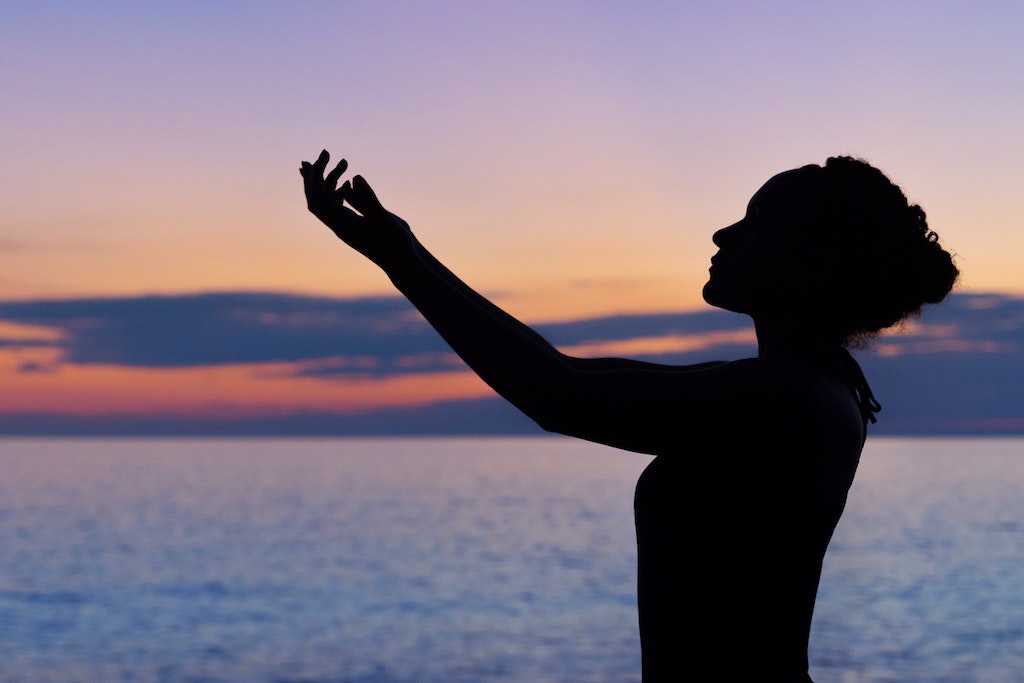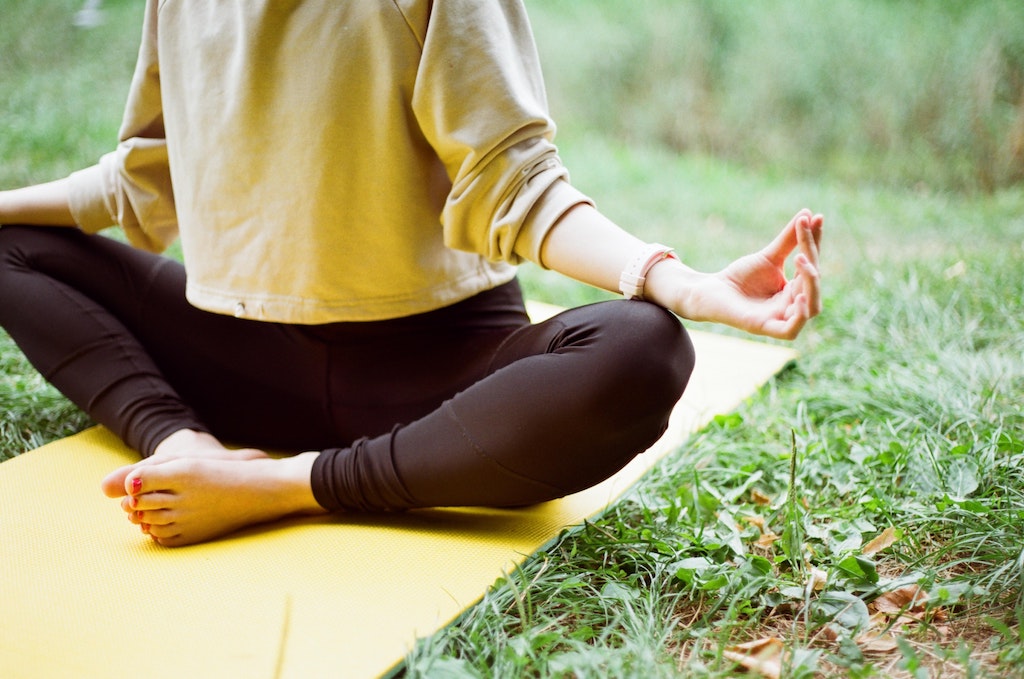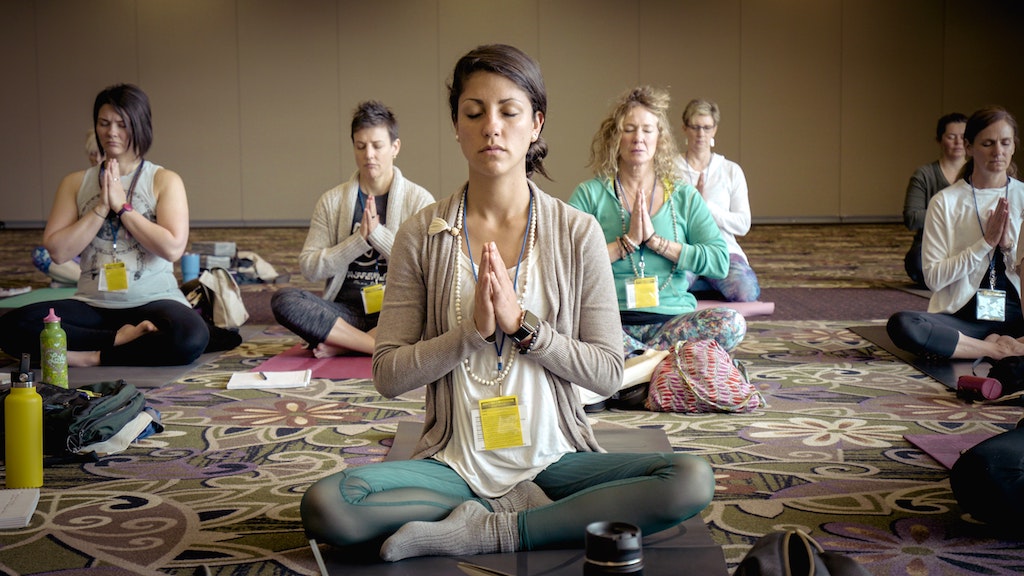What is a Silent Yoga Retreat?
Think of the word retreat and the mind begins to conjure up images of lush landscapes, lots of me-time, away from it all.
Introduce silence and some of the enthusiasm quickly fades…
The idea of a silent yoga retreat can feel anything from daunting to daring, depending upon how courageous one is feeling…
A silent yoga retreat is a yoga retreat without any form of talking. It’s almost always an intense and transformative experience that involves taking a few days off from distractions and spending that time focusing on our body and breath, while being silent.
It’s an experience that can reset us and restore depleted reserves of peace and joy.
However, going on a silent yoga retreat is not for everyone…
This article will take you on a journey where you will find out everything you have ever wanted to know about silent yoga retreats.
So, brace yourself and read on.
What to expect on a Silent Yoga Retreat?
Silent yoga retreats can be of varying intensities.
Some allow for a few hours of interaction with the teacher and participants at the close of the day’s practices.
The more advanced ones can ask participants to observe silence for the entire duration of the retreat, so no mobile phones, gestures, eye contact, reading, or writing.
A typical day starts early and follows a schedule of different yoga practices like asanas (physical poses), pranayamas (breathing exercises), meditations, and discourses.
Food is light, fresh, and in most places, vegetarian.
It is possible to fluctuate between euphoria and misery, sometimes frequently.
The experience of silence for each person can be completely different so doing away with any preconceived notions and expectations is helpful.
Possible Challenges while attending a Silent Yoga Retreat
Being away from the different noises that fill up our lives can open up unimaginable amounts of space in the mind.
Because of a lack of distractions that create busyness, it is possible that to keep itself occupied, the mind starts to rake up the past, and old issues resurface or build imaginary scenarios that lead to worry and anxiety. This can feel unsettling.
With time and patience and a resolve to not give up, the mind begins to ease itself and finds its state of balance.
However, if the feeling persists and becomes difficult to manage, it is best to speak to the teacher and seek their guidance.
When to avoid a Silent Yoga Retreat?
If there is a recent or unhealed trauma that brings up intense negative emotions, if there is a psychological problem that needs therapeutic attention, or if the thought of being alone brings up intense anxiety and fear, it is best to avoid a silent retreat and wait for a time when we feel more ready.
Benefits of a Silent Yoga Retreat?
The self is made up of four aspects – mind, body, spirit, and emotions.
Even a few days spent in silence helps reconcile these four aspects and restore their natural state of harmony.
While some benefits are visible immediately, others accrue over time with regular practice.
Here are some of the benefits of a silent yoga retreat:
1. Increases awareness of the body
To keep up a daily yoga practice is challenging.
Whether at home or in a studio, our never-ending to-do lists can keep attention divided and cues from the body can be missed.
With nothing to do and nowhere to go, a retreat is a wonderful way to stay with the sensations of the body and listen to what it wants to tell us.
2. Builds or deepens your yoga practice
Wherever one is in the journey of their yoga practice, an extended period of time spent on the mat allows for paying careful attention to the parts of the body where there is resistance.
Silence releases much of the mind-space and it becomes possible to surrender and sink into postures.
3. Improves quality of breath
Speech is exhalation.
Being silent helps in deepening the breath and making it smooth, continuous, and even.
Breathing in this way soothes the parasympathetic nervous system as a result of which there is a considerable reduction in stress levels and a feeling of peace and calm cultivates.
4. Meditation becomes easier
A lot of our vital energy is spent on communication.
Observing silence frees up speech energy and makes it available as spiritual energy.
It becomes easier to sit and keep sitting with our breath as our friend and guide and get in touch with our inner selves.
5. Emotions are processed
Suppressed emotions begin to come to the surface. And that’s a great thing because denying emotions does not mean that they don’t exist.
It becomes possible to observe, understand, and consequently, make peace.
6. Creates an empowered self
Sticking to a routine and practicing self-discipline gives a boost to self-confidence.
The tools and techniques that become available to us through yoga build self-reliance as it becomes possible to nourish our wellbeing independently.
We develop more faith in our own selves.
How to prepare for your Silent Yoga Retreat?
There are a few things we can do to be more relaxed and make our time in the retreat feel easier.
👉 To learn more about how to prepare for a silent yoga retreat, click on the link.
The Significance of Silence in Yoga
Because most of us live lives of sensory overload, stepping into the nothingness of silence might not come easy.
However, realizing how integral silence is to spirituality and how quickly it can permeate into our deepest caves so we are able to see what lies inside, helps us build more faith both in ourselves and the commitment.
The Sanskrit word for the yoga of silence is Mauna. It is the practice of not-speaking for the purpose of self-purification.
A person who is in Mauna observes a vow of silence and abstains from any form of verbal and non-verbal communication.
In the eightfold path of Yoga, withdrawing from the sensory experience of speech marks the transition from moving from the outside to the inside.
It lays the foundation for the higher practices of concentration, contemplation, and meditation.
In closing
The one key to getting a silent yoga retreat right is self-compassion.
If there are moments when you are having a difficult time, or if you begin to feel inadequate and overwhelmed, instead of being hard on yourself, offer yourself kindness and understanding.
It is ok to not be perfect, to fail, and if it comes to that, even to give up.
A silent yoga retreat can be a wonderful opportunity to spend time with your own self. The more you open your heart and give love to yourself, the nicer that time will be.
I hope this article has been insightful and has been of help to you to clarify what is a silent yoga retreat. If you have any questions, please feel free to submit them below. Thanks for being there, see you in the next one! 🙂







